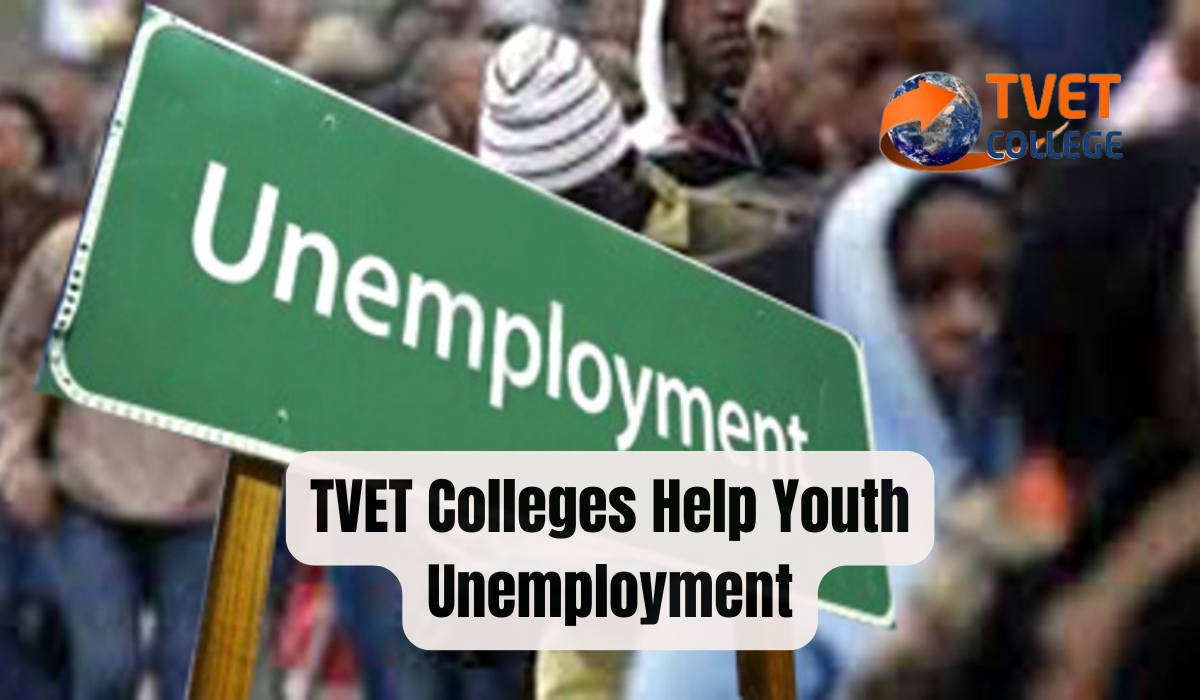TVET Colleges Help Youth Unemployment

TVET Colleges Help Youth Unemployment. The rise in youth unemployment is a pressing issue in South Africa, as highlighted by recent statistics. According to Stats SA, the unemployment rate surged to 33.5% in Q2 of 2024, with young people bearing the brunt of this crisis. Many qualified young individuals are forced into retail jobs or, worse, turn to criminal activities due to economic desperation.
TVET (Technical and Vocational Education and Training) colleges are emerging as crucial players in addressing this problem. This article explores how TVET colleges can combat youth unemployment and the steps needed to enhance their impact.
The State Of Youth Unemployment
The current economic landscape presents a harsh reality for many young South Africans. Despite having qualifications, many are compelled to take low-paying jobs in retail due to their financial situations. Others, struggling with unemployment, have unfortunately turned to crime as a means of survival. This situation underscores the urgent need for effective solutions to provide these young people with viable employment opportunities.
The Role Of TVET Colleges
TVET colleges have been identified as key institutions in the fight against youth unemployment. These colleges offer training in various trades and skills that can lead to employment or self-employment. However, their effectiveness is contingent on several factors:
1. Support From Sector Education and Training Authorities (Setas)
For TVET colleges to succeed, they need coherent support from Setas and government departments. Unfortunately, the allocation of grants to these institutions has often been ineffective. Without adequate funding and resources, TVET colleges struggle to provide meaningful training that leads to job placements.
2. Addressing Training Gaps
Despite the availability of state-of-the-art skills centers, TVET colleges face challenges in addressing training gaps. In many areas, especially in townships and rural villages, the training provided is not sufficient to meet the needs of all youths. Additionally, the lack of widespread information about available training programs exacerbates the problem, with some officials misappropriating opportunities for personal gain.
Embracing Green Skills For The Future
The recent State of the Nation Address by President Cyril Ramaphosa highlighted the government’s commitment to transitioning to renewable energy. In this context, green skills—such as solar manufacturing, wind energy installation, and battery and hydrogen energy—are becoming increasingly important. Training unemployed youth in these green skills can significantly contribute to reducing the unemployment rate and supporting the transition to a decarbonized economy.
The Need For Robust Support
To fully leverage the potential of TVET colleges, there must be a concerted effort from all stakeholders, including government, industry partners, and educational institutions. Investing in training programs that align with market needs and providing transparent access to these opportunities are essential for achieving meaningful outcomes.
Conclusion
TVET colleges play a crucial role in addressing youth unemployment by offering valuable skills training for both employment and self-employment. However, their success depends on effective support from Setas, the government, and other stakeholders. By focusing on relevant training, particularly in emerging fields like renewable energy, and ensuring equitable access to opportunities, we can enhance the impact of TVET colleges and contribute to alleviating youth unemployment. It is imperative to use resources wisely and implement strategies that genuinely address this significant issue.











